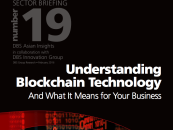Ever heard of Bitcoin? It’s a digital currency that has been sending shockwaves through the financial investment markets ever since it was launched in 2008 by Satoshi Nakamoto. The concept, to many, is difficult to understand, but its rise in value over the last few years and the number of people trading it has made many others prick up their ears.
Bitcoin relies on Blockchain technology in order for it to work. Blockchain is basically a digital ledger that records all the Bitcoin transactions, in a linear fashion, as they occur. Blockchain technology means that so called “trustless” transactions of Bitcoin can be made digitally and without the need for institutions, such as banks to enforce these transactions.
This of course raises a myriad of legal issues that larger legal companies are currently looking over, though as of yet, they have not been fully addressed. Nevertheless, Bitcoin is being traded as a digital currency on the markets and is being used to purchase goods from merchants who accept it.
Bitcoin and Blockchain technology is being adopted by a growing number of counties and businesses. Japanese e-commerce and internet giant Rakuten have recently opened a Blockchain lab in Northern Ireland with sole purpose of developing Blockchain applications for use in e-commerce and financial technology (fintech).
Rakuten have also recently taken over Bitnet Technologies, a company that specialises in Bitcoin merchant payment solutions. An article in Bitcoin Magazine quotes Yasufumi Hirai, who is amongst other things is head of the Technology Division of Rakuten, as saying that the takeover was the “first step forward unlocking Blockchain’s potential to revolutionise the way the financial and e-commerce transactions are conducted.” And the Japanese are not the only ones who are interested in developing Blockchain technology.
BNY Mellon, Deutsche Bank, ICAP and Santander recently announced that they will be working with Clearmatics, a Blockchain developer, to create a new digital currency. The currency is being designed to be used in the financial markets sector and is to be called Utility Settlement Coin.
It is clear from the sheer amount of activity, investment and interest in Blockchain that there is, for many, intrinsic value in it and that moving forward it is going to play a big role in a huge range of sectors.
Hyperledger, an open Blockchain development company are recruiting 2 new members per week, recently Samsung SDS joined nearly 100 other companies who all share the same growing interest in the emerging technology.

Brian Behlendorf, Hyperledger’s Executive Director
An article on the CoinDesk website quotes Brian Behlendorf, Hyperledger’s executive director, as saying “At a growth rate of nearly two new members joining per week – there’s no telling where we’ll be at by the end of the year – I look forward to working with this growing community to further our open blockchain development efforts.”
We can be relevantly confident that in the short term cash and traditional methods of banking are going nowhere. Look ten years into the future, however and the monetary landscape may look a whole lot different. With the help of Blockchain, it may look digital.
Image credit: Bitcoin mobile phone, Shutterstock.com.









